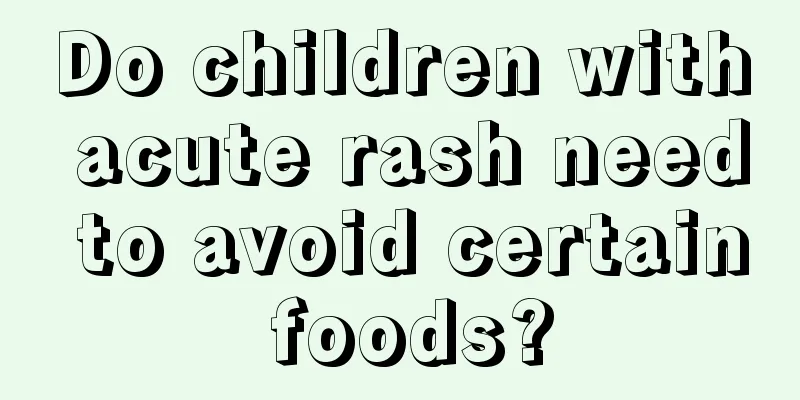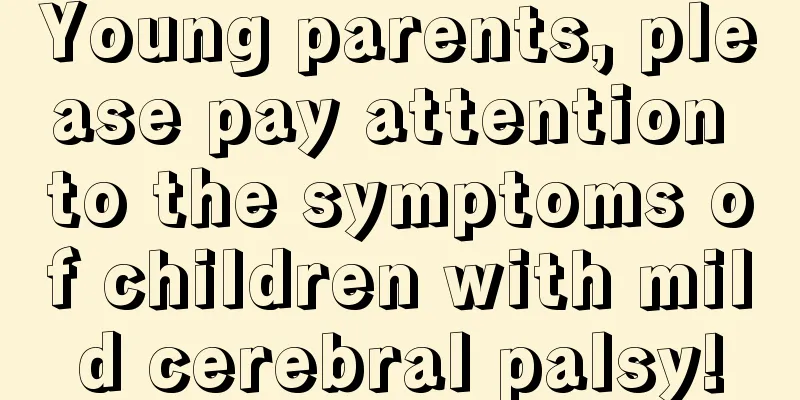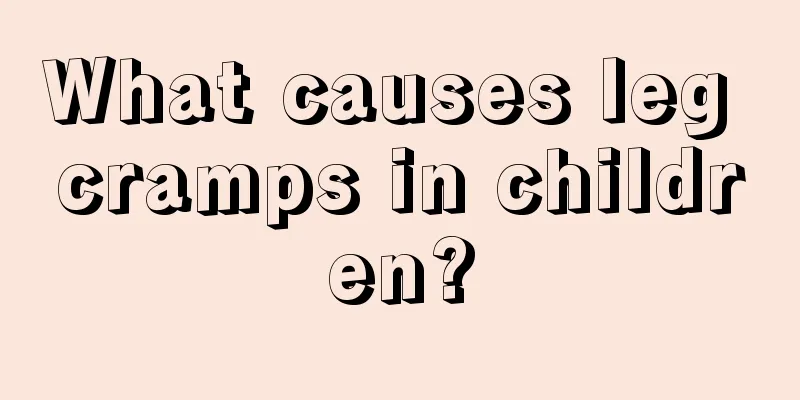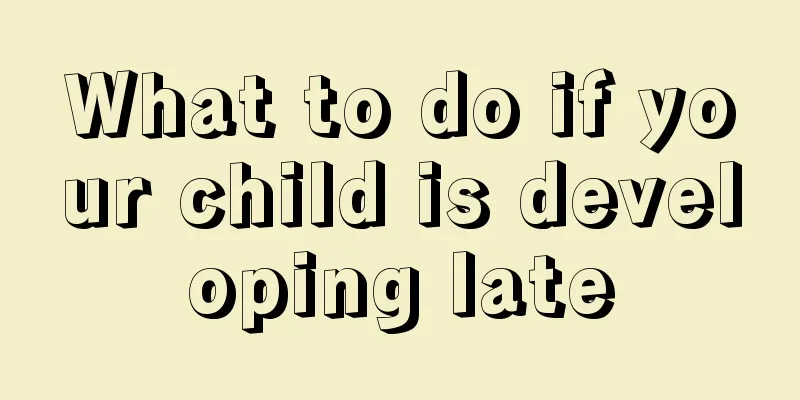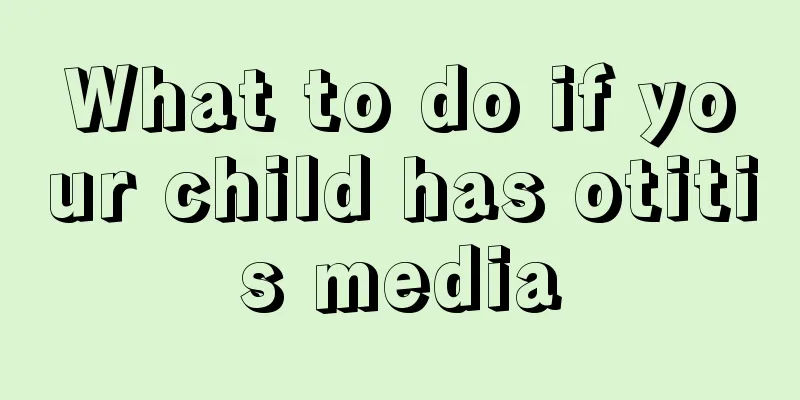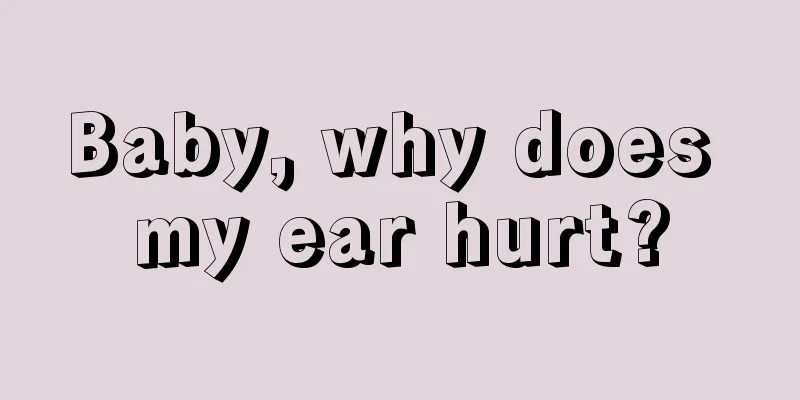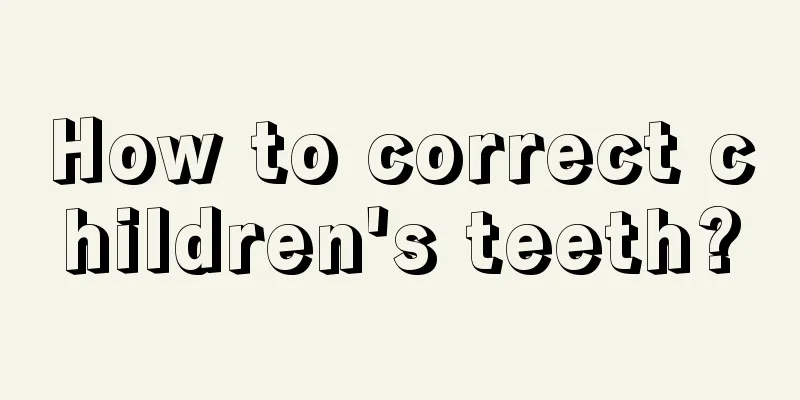What is the reason for a child's persistent high fever?
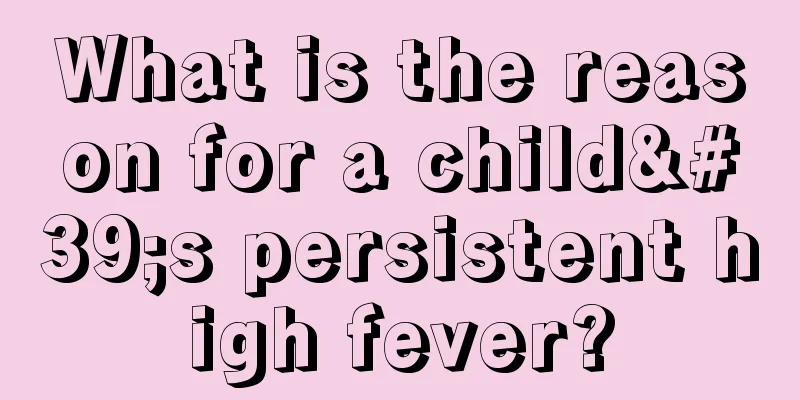
|
When a child is found to have a high fever, appropriate measures must be taken to treat him/her to avoid more serious situations. Many children will have a high fever that will not go away, and sometimes it will recur frequently. This phenomenon needs to attract the attention of parents. If the high fever persists for a long time, it is very dangerous. So what is the reason for the child's persistent high fever? 1. Dehydration In the hot summer, children lose more water through breathing and skin than in other seasons, and the amount is even greater when they have a fever. For every 1°C increase in body temperature, the amount of water lost per kilogram of body weight per hour increases by 0.5 ml. When you sweat profusely while taking antipyretics, you lose more water from your body. Dehydration not only makes it difficult to reduce fever (dehydration itself can cause fever in young infants), but also affects metabolism and blood circulation, causing acidosis, etc. Therefore, children with high fever must be encouraged to drink water and, if necessary, receive intravenous drips under the guidance of a doctor. 2. High fever cramps Generally speaking, children under 6 months old or over 6 years old will not suffer from cramps due to high fever. Among children aged 1 to 6 years old, only 2% to 5% will experience this type of cramps. Cramps often occur when a high fever suddenly occurs. Cramps only occur once per fever and rarely more than twice. As long as the convulsions do not last long and are handled properly, they will not have much impact on the child's health. But repeated or persistent cramps can cause cerebral hypoxia and damage the brain. 3. Hypernatremia or hyponatremia At the beginning of fever, dehydration occurs, the sodium concentration in the blood increases, the blood becomes hyperosmotic, and dry mouth, extreme thirst, irritability, and even delirium or convulsions occur. The fever will not only not subside but will become higher. If the fever persists for a long time and the diet is not appropriate, hyponatremia will occur, and the child will become extremely tired and even apathetic or comatose. These conditions are more common in infants and young children who are usually malnourished. 4. “Brain damage” Generally, fever has little effect on the body's tissues and organs, and can accelerate the development of resistance. When the body temperature exceeds 41°C, proteins in the body will decompose, causing cerebral edema and resulting in death or sequelae of encephalopathy in the child. Therefore, if a child has a high fever above 40°C, emergency treatment is required. The above is an introduction to the reasons why children have persistent high fevers. We must avoid high fevers in our lives. If a child has this situation, it is very dangerous and will have a certain impact on the child’s intelligence. Therefore, when a child has a high fever, we must reduce the fever as soon as possible. |
<<: Does a child's fever and convulsions affect the brain?
>>: What to do if your child has a stuffy nose, cough and phlegm
Recommend
Treatment for pimples on baby's face
I believe every child will encounter the phenomen...
What’s wrong with a child’s philtrum turning blue?
When Chinese people look at a person's face, ...
What are the symptoms and clinical manifestations of tracheitis in children?
The weather nowadays is really changeable, especi...
The baby will turn sideways during the confinement period
Newborn babies are curious about the world. They ...
What are the symptoms of rickets in children?
The growth of children is the future of the mothe...
1 year 2 months old baby recipes and how to make them
The 1 year and 2 month old baby has grown up and ...
What causes blisters on children's legs?
Children can be said to be the hope of the entire...
Treatment of inguinal hernia in children
Children are more likely to be infected with bact...
Is it okay for children to drink milk powder at night?
When parents are taking care of their children, t...
What are the red spots on the baby's face?
In our daily life, we sometimes find red spots on...
What can babies eat to get better quickly from enteritis?
As we all know, the baby's stomach and intest...
What are the clinical manifestations of hydrocele in children?
There are two types of hydrocele in children, pri...
What should I do if my baby’s face is scratched by other children?
It is normal for children to play with each other...
Henoch-Schonlein purpura in children
Every child comes into this world with God's ...
Why can't girls be spanked?
The brain tissue is located in the cranial cavity...
